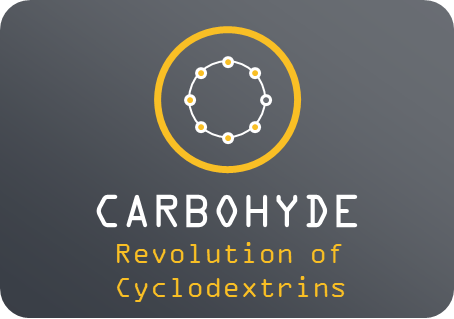How does cyclodextrin-based catalysis work?
Cyclodextrin-based catalysis leverages the unique structure of cyclodextrins, which form inclusion complexes with reactants, intermediates, or catalysts.
Their cavities create sterically restricted, non-polar environments that enhance reaction efficiency and selectivity, protecting unstable intermediates from side reactions. Through covalent or noncovalent modifications, cyclodextrins are combined with metal catalysis, achieving high yields and selectivity in one-pot reactions. These catalysts are also integrated into advanced materials like metal-organic frameworks, supporting unique applications.
As a result, cyclodextrin-based catalysis aligns well with green chemistry principles and offers significant contributions to sustainable chemical processes.
photo credit: 10.1139/v06-039

